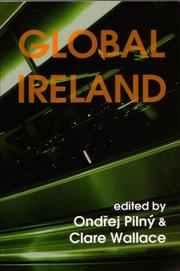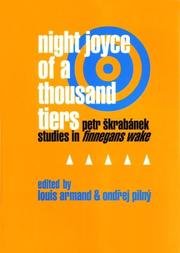| Listing 1 - 7 of 7 |
Sort by
|
Book
ISBN: 1137513187 1137513179 Year: 2016 Publisher: London : Palgrave Macmillan UK : Imprint: Palgrave Macmillan,
Abstract | Keywords | Export | Availability | Bookmark
 Loading...
Loading...Choose an application
- Reference Manager
- EndNote
- RefWorks (Direct export to RefWorks)
Following on from the work of art historians and literary and cultural theorists, this book examines the ways in which varieties of the grotesque function in the plays of Philip Ridley, Mark O’Rowe, Enda Walsh, Suzan-Lori Parks and Tim Crouch. The term ‘grotesque’ has been frequently applied in commentaries on some of the most exciting contemporary drama, without much further elucidation. By producing visions of an alienated world, engendering simultaneous attraction and repulsion, and often triggering laughter that comes with a chill in the spine, the grotesque attacks both aesthetic and social conventions and requires a creative use of the imagination on the part of the spectators. The book argues that as such, the grotesque in the works of the selected playwrights solicits profound audience engagement with urgent ethical, social and political issues. The inevitable openness caused by the grotesque demonstrates the authors’ faith in the deliberative powers of their audience, which stands in contrast to the ready-made choices offered by overtly committed political theatre.
Literature. --- Literature --- Literature, Modern --- British literature. --- America --- Contemporary Literature. --- British and Irish Literature. --- North American Literature. --- Literary Theory. --- Philosophy. --- 20th century. --- 21st century. --- Literatures. --- English drama --- American drama --- Grotesque in literature. --- History and criticism. --- American literature --- English literature --- Literature, Modern-20th century. --- America-Literatures. --- Literature-Philosophy. --- Literature, Modern—20th century. --- Literature, Modern—21st century. --- America—Literatures. --- Literature—Philosophy.
Digital
ISBN: 9781137513182 Year: 2016 Publisher: London Palgrave Macmillan UK :Imprint: Palgrave Macmillan
Abstract | Keywords | Export | Availability | Bookmark
 Loading...
Loading...Choose an application
- Reference Manager
- EndNote
- RefWorks (Direct export to RefWorks)
Following on from the work of art historians and literary and cultural theorists, this book examines the ways in which varieties of the grotesque function in the plays of Philip Ridley, Mark O’Rowe, Enda Walsh, Suzan-Lori Parks and Tim Crouch. The term ‘grotesque’ has been frequently applied in commentaries on some of the most exciting contemporary drama, without much further elucidation. By producing visions of an alienated world, engendering simultaneous attraction and repulsion, and often triggering laughter that comes with a chill in the spine, the grotesque attacks both aesthetic and social conventions and requires a creative use of the imagination on the part of the spectators. The book argues that as such, the grotesque in the works of the selected playwrights solicits profound audience engagement with urgent ethical, social and political issues. The inevitable openness caused by the grotesque demonstrates the authors’ faith in the deliberative powers of their audience, which stands in contrast to the ready-made choices offered by overtly committed political theatre.
Philosophy --- Linguistics --- American literature --- English literature --- Literature --- Amerindian literature --- geletterdheid --- theater --- filosofie --- literatuur --- Amerikaanse cultuur --- Engelse literatuur --- anno 1900-1999 --- anno 2000-2099 --- Great Britain --- Ireland --- United States of America
Book
ISBN: 8073081261 9788073081263 Year: 2006 Publisher: Prague Literaria Pragensia
Abstract | Keywords | Export | Availability | Bookmark
 Loading...
Loading...Choose an application
- Reference Manager
- EndNote
- RefWorks (Direct export to RefWorks)

ISBN: 9788073081034 8073081032 Year: 2005 Publisher: Prague Literaria Pragensia
Abstract | Keywords | Export | Availability | Bookmark
 Loading...
Loading...Choose an application
- Reference Manager
- EndNote
- RefWorks (Direct export to RefWorks)
English literature --- Ireland --- 820 <417> --- 820 <417> Ierse literatuur --- Ierse literatuur
Book
Abstract | Keywords | Export | Availability | Bookmark
 Loading...
Loading...Choose an application
- Reference Manager
- EndNote
- RefWorks (Direct export to RefWorks)
Comparative literature --- Comparative literature --- Czech literature --- English literature --- Literature and society --- Literature and society --- Czech and Irish --- Irish and Czech --- History and criticism --- Irish authors --- History and criticism --- History --- History --- Czech Republic --- Ireland --- Civilization. --- Civilization.

ISBN: 8023888536 Year: 2002 Publisher: Prague Litteraria Pragensia
Abstract | Keywords | Export | Availability | Bookmark
 Loading...
Loading...Choose an application
- Reference Manager
- EndNote
- RefWorks (Direct export to RefWorks)
Book
ISBN: 3030575624 3030575616 Year: 2021 Publisher: Springer Nature
Abstract | Keywords | Export | Availability | Bookmark
 Loading...
Loading...Choose an application
- Reference Manager
- EndNote
- RefWorks (Direct export to RefWorks)
Based on extensive archival research, this open access book examines the poetics and politics of the Dublin Gate Theatre (est. 1928) over the first three decades of its existence, discussing some of its remarkable productions in the comparative contexts of avant-garde theatre, Hollywood cinema, popular culture, and the development of Irish-language theatre, respectively. The overarching objective is to consider the output of the Gate in terms of cultural convergence – the dynamics of exchange, interaction, and acculturation that reveal the workings of transnational infrastructures.
Theater—History. --- Theater. --- British literature. --- Theatre History. --- National/Regional Theatre and Performance. --- British and Irish Literature. --- Dramatics --- Histrionics --- Professional theater --- Stage --- Theatre --- Performing arts --- Acting --- Actors --- Theatre History --- National/Regional Theatre and Performance --- British and Irish Literature --- National and Regional Theatre and Performance --- Literature --- Dublin Gate Theatre --- cultural exchange --- Ireland --- avant-garde --- North America --- experimental --- exchange --- interaction --- acculturation --- Open Access --- Theatre studies --- Literature: history & criticism
| Listing 1 - 7 of 7 |
Sort by
|

 Search
Search Feedback
Feedback About UniCat
About UniCat  Help
Help News
News